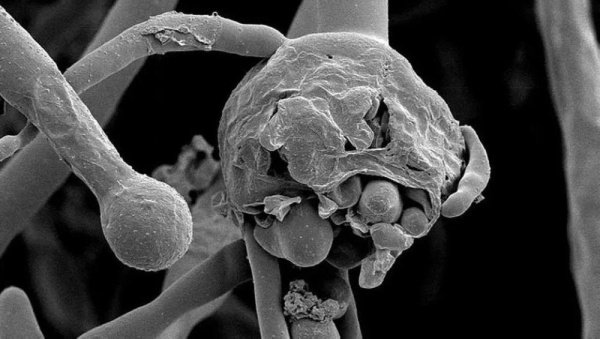New Black Fungus case detected in Wasit

Shafaq News/ A medical source reported today that a Black Fungus case had been detected in Wasit Governorate, southern Iraq.
The source told Shafaq News Agency that this is the first case in the governorate, noting that the patient is a 40-year-old man who works as an officer and has tested positive for COVID-19.
On June first, Al-Sulaymaniyah registered a mucormycosis death case today for a 78-year-old resident.
Abdullah Kuran, the media rapporteur of al-Sulaymaniyah Health department, told Shafaq News agency that the deceased had been admitted to a hospital two weeks ago due to his COVID-19, diabetes, and heart diseases.
As by Kuran, the deceased had symptoms of "black fungus" in areas of his body and eyes, pointing out that the man died due to his poor immunity.
The Iraqi Ministry of Health assured earlier today that Mucurmycosis, a.k.a the "Black Fungus", is not an "Epidemic disease", stressing that it outdates the novel Coronavirus "SARS-CoV-2" that causes COVID-19.
On Monday, a medical source reported that the first official mucormycosis death in Iraq had been registered in Dhi Qar.
The source told Shafaq News Agency that the disease was discovered by coincidence upon the patient's death.
"The man's initial death document stated that he died from a fungus in the eye, but a specialist doctor examined the case and then discovered by chance that the man died due to his infection with the black fungus disease",the source said.
Mucormycosis is a fungal infection that causes blackening or discoloration over the nose, blurred or double vision, chest pain, breathing difficulties and coughing blood.
The disease has a close link to diabetes, and conditions which compromise the immune system. Experts have said that an overuse during the COVID-19 pandemic of certain drugs which suppress the immune system could be causing the surge.
Data from the U.S. Centers for Disease Control and Prevention shows that mucormycosis has a mortality rate of 54%, which can vary depending on the condition of the patients and the body part affected.
The disease is not contagious, which means that it cannot spread from contact between humans or animals. But it does spread from fungal spores that are present in the air or in the environment, which are almost impossible to avoid.





